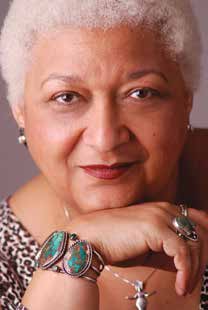
By Jewelle Gomez–
I grew up around bars. My father was a bartender; when I visited him on weekends, his patrons greeted me with open arms though my head barely cleared the bar stools. Trick or treating always garnered me more dollars than candy. So, when I moved to New York City in the 1970s, I assumed I’d find (what they call in England) “my local.” It would be like the bar in the TV show Cheers, “where everybody knows your name.”
I was shy, so it took a while to make friends and discover a hangout spot. But finally, around 1979, I landed at the Duchess. Legendary, it was centrally located in the West Village around the corner from the historic Stonewall Inn as well as A Different Light Bookstore. It was the heart of queerness!

I took a deep breath before opening the door for the first time, realizing that my life as a lesbian would never be the same. Mine wasn’t the earlier generation when young lesbians had few places to meet except in bars. No women’s bookstores, no cruises, no internet. In 1979, the danger of being seen and having your reputation and life ruined was not as acute as it had been in 1949 or 1959. Back then, the community epidemic was alcoholism, in part because of the isolation and loneliness, and because lesbians were left with only bars in which find each other. Never-the-less, so many lesbians remember those bars as vital to our survival, education, and sense of community.
Dr. Marie Cartier ( https://tinyurl.com/3n99wnsf ) points out in her lively book, Baby You Are My Religion: “Pre-Stonewall gay bars [that includes lesbian] functioned as centers of communities … . The bar was the only space in which these women could actually be … .” Cartier interviews a lot of women, including some from Old Lesbians Organizing for Change (OLOC) (of which I’m a member), who found themselves “saved” by the bars. The stories are varied, but most tap into the sense of revival that bars offered, even when women wouldn’t have framed it as a religious experience.
I approached the door of the Duchess that first time with some trepidation along with my sense of holiness. Once through this door I didn’t have to guess. I didn’t have to interpret endless clues that were often misleading and dangerous—even if we had nothing as obvious as the handkerchief code the boys on Christopher Street embraced.

I met friends there after work, or blind dates (because I knew I’d be safe) or fellow writers. I had my first book party at the Duchess for my self-published collection of poetry. I had to perch precariously on a ladder to read over people’s heads while my girlfriend held my legs so I didn’t fall. I spent so much time in the Duchess that I still exchange holiday cards with Pat, my favorite bartender.
Recently I was interviewed by Elena Rosa, who is creating a website called Lesbian Bars: https://www.lbar.co/
It offers an immersive trip through lesbian history using bars from around the world. She’s done extensive research into music as well as the interior details of older bars now closed, and the few that are still hanging on. You click and enter (with much more ease than I did the first time) and hear Joan Nestle talk about hanging out at Mona’s when it was the place to be. Or listen to the raw stories of the poet Chrystos or Kitty Tsui or my bartender Pat King! I love revisiting the ebb and flow of customers from my perch at the Duchess. Or you can visit The Lexington Club in the Mission and see the pool table atop which I did a reading for LitQuake before that beloved spot closed.
The racism is not glossed over nor is the domination by organized crime and abuse by police. If the bars assert anything it’s that lesbians know how to make a space bring light out of the darkness. Drop into the online “bar” and listen to the stories; sign up, before it migrates to a new location after December 31. Our community resilience still inspires me when I go on the website. I’m going “where everybody knows your name.”
Jewelle Gomez is a lesbian/feminist activist, novelist, poet, and playwright. She’s written for “The Advocate,” “Ms. Magazine,” “Black Scholar,” “The San Francisco Chronicle,” “The New York Times,” and “The Village Voice.” Follow her on Instagram and Twitter @VampyreVamp
Leave Signs
Published on November 17, 2022
Recent Comments